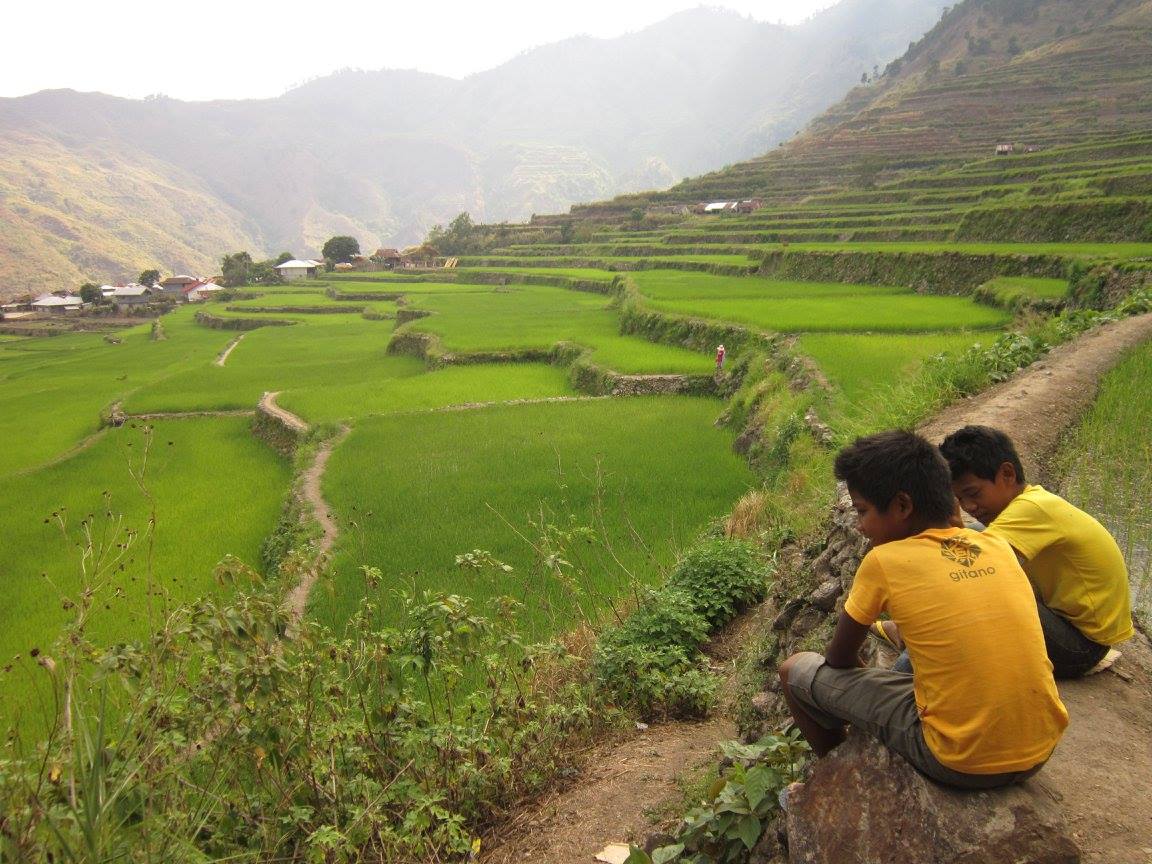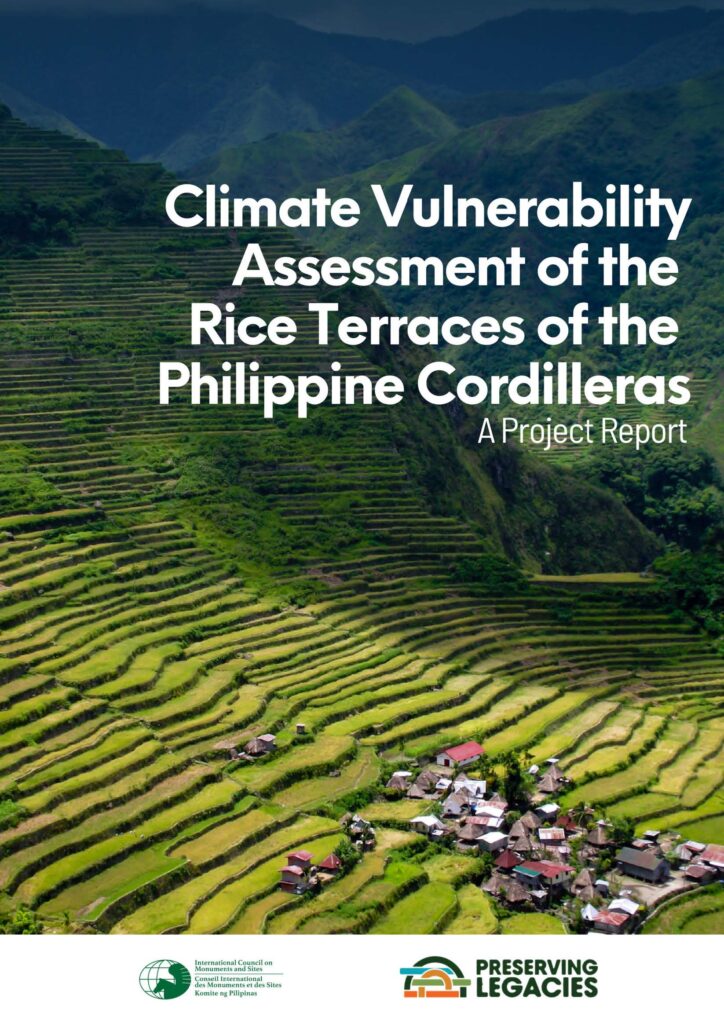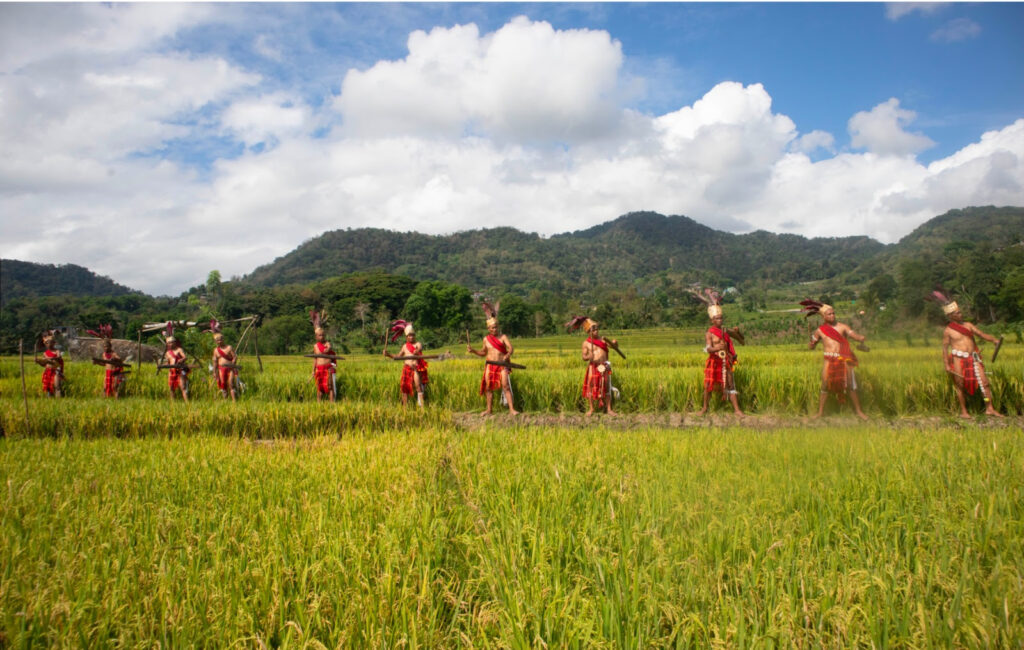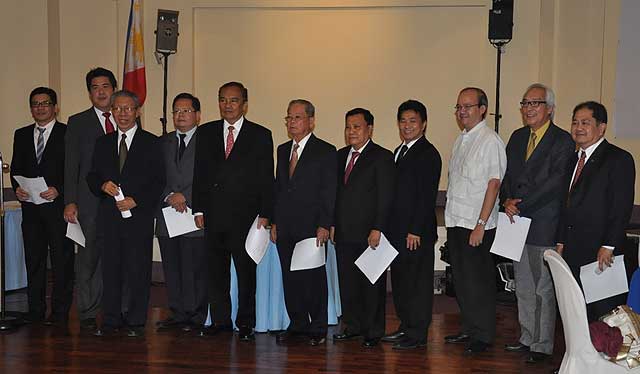Dr. Laya Boquiren-Gonzales stirred the discussion with onsite participants. She moderated the open forum of the panel taking in questions from the diverse audience composed of other cultural workers and local heritage advocates.
ICOMOS Philippines led a panel discussion at the 2024 National Conference on Local History and Heritage (NCLHH) last August 29, 2024, in the Ayala Museum, Makati City. The panel with the title Heritage Conservation Practices in the Philippines was chaired and moderated by Dr. Laya Boquiren-Gonzales, PhD, and was composed of Ms. Maria Cristina Paterno, Ar. Kenneth Javier Tua, and LAr. Gabriel Caballero.
Ms. Maria Cristina P. Paterno, Immediate Past President of ICOMOS Philippines and Projects Manager of Preserving Legacies presented “Climate Vulnerability Assessment of the Ifugao Rice Terraces: Preserving Legacies, A Future for Our Past.” She shared the findings and experience of the recently published study that looked into the values of the terraces for the local communities and how these values, rooted in Indigenous knowledge, are impacted by climate change, as well as contribute to strengthening resilience and adaptive capacity as they try to preserve and protect their cultural heritage by integrating modern climate science.
Ar. Kenneth Javier Tua, Vice President of ICOMOS Philippines and Country Director of the UNESCO-Heritage Emergency Fund project for the Historic City of Vigan presented “Saluad-Tawid: Conserving and Protecting Heritage Houses and Structures in the Historic City of Vigan After the 2022 Earthquake.” The recently concluded project provided valuable lessons for disaster risk management for cultural heritage and working in a multi-stakeholder environment.
LAr. Gabriel Victor A. Caballero, Focal Point for the United Nation’s Sustainable Development Goals (SDGs) of ICOMOS International presented “Pamana 2030: Local Case Profiles on Philippine Heritage and Sustainable Development Goals.” He presented selected efforts by the ICOMOS Sustainable Development Goals Working Group (SDGWG) to document heritage initiatives that intersect with SDGs.
Laya Boquiren-Gonzales, PhD, gave a short presentation about the upcoming initiative to document and safeguard the heritage of the devotion to the Santo Niño de Cebú in partnership with Ramon Aboitiz Foundation Inc. (RAFI), one of the three landmark projects under the ‘Kabilin Partnership’ with ICOMOS Philippines.
Dr. Laya Boquiren-Gonzales stirred the discussion with onsite participants. She moderated the open forum of the panel taking in questions from the diverse audience composed of other cultural workers and local heritage advocates.

We in ICOMOS Philippines express our sincere gratitude and congratulations to the National Historical Commission of the Philippines, the organizers of the conference for the opportunity to share our work and on-ground experience towards a respected heritage profession in the country, and Philippine heritage that is conserved to the highest standards. We look forward to taking part again in the next NCLHH Conference.
For more information on ICOMOS Philippines https://philippines.icomos.org/
#ICOMOSPH #NHCP #ParaSaPamana #Kabilin #HistoryMonth #PatuloySaPagtuklas #OurHistoryContinues #HeritageConservation #LHCN2024





